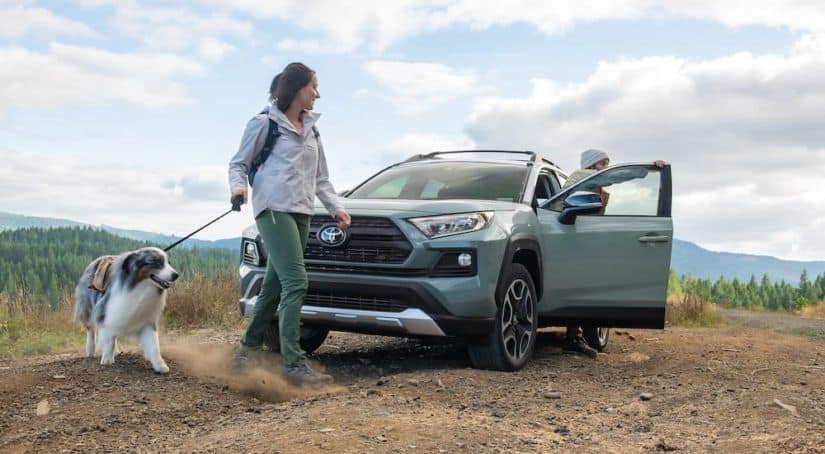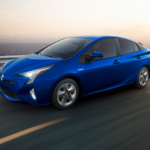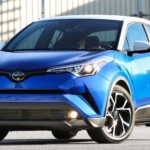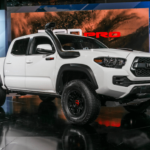Hybrid models are becoming more widely available across all vehicle manufacturer lineups, and most buyers believe the benefits lie mostly in savings on gas and reducing emissions. However, there are more reasons than just savings on gas to purchase a hybrid vehicle. What many buyers may not realize is that hybrids often bring better performance, fewer visits to the shop for repairs, and longer-lasting powertrains. Toyota has been at the forefront of hybrid production since the Prius came out two decades ago, but how do the 2021 Toyota hybrids match up to their gas-powered siblings today?
Toyota SUVs
With SUV sales skyrocketing, some manufacturers are ditching their sedans entirely to focus on SUVs alone. Typically, SUVs are gas-guzzling beasts that require buyers to cough up a lot of cash at the pump, especially when getting into the three-row vehicles. Toyota’s 2021 Highlander is a three-row SUV and is a popular model with a comfortable interior known for its soft-touch materials, quiet cabin, and smooth ride. It also comes with both a traditional gasoline V6 and a hybrid powertrain. Comparing fuel economy first, the gas-powered version gets only 24 MPG combined, while the hybrid ekes out 36 MPG combined.
That’s a huge difference right off the bat, but the warranty for the hybrid is a far better deal than the gas-powered trims. The hybrid system overall is covered for 96 months or 100,000 miles, while the battery is covered for 120 months or 150,000 miles. That warranty covers the hybrid battery control module, the power management control module, and the hybrid inverter. Generally, hybrid batteries last well beyond the warranty, and the warranty extends to a second-hand buyer, which increases resale value.
What’s worth noting, along with the gas savings and better warranty, is that reports of hybrid car maintenance over the years have pointed to fewer visits to the garage for brake replacement and oil changes. While the gas-powered portions of the Highlander require the same types of maintenance you expect from gas-only vehicles, because the electric motor reduces the use of the gas engine, it should need repair less often.
The 2021 Highlander has four trims of hybrids, including the luxurious Platinum trim with all the bells and whistles. The pricing differences between the trim levels of gas-powered and hybrid choices are also quite small. Choosing the LE trim as a hybrid sets buyers back about $1,400, which will soon pay for itself with its lower gasoline consumption.
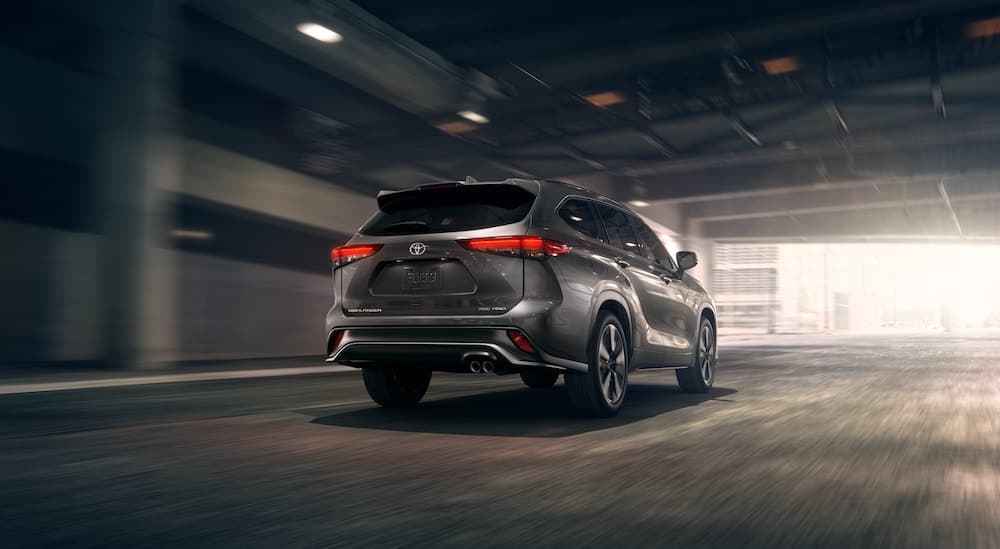
Hybrid SUVs Reimagined
Another Toyota SUV offered as a hybrid is the spirited RAV4, which can be purchased as either a hybrid or a plug-in hybrid. The standard gas-powered 2021 RAV4 gets an already efficient 30 MPG combined. But compare that to the hybrid at 40 MPG combined or the plug-in Prime at 94 MPGe, and the savings becomes far more attractive. The price difference between the gasoline and hybrid version is also fairly small at around $2,500, depending on the trim level. However, the RAV4 Prime does carry a larger premium. Towing capacity is higher for the hybrid at 1,750 lbs, compared to 1,500 lbs for the standard RAV4. The RAV4 Prime plug-in can tow up to 2,500 lbs, which is a significant amount.
A big advantage of the plug-in models is the range of driving available, with the engine capable of driving on electric-only mode for longer than the hybrids that don’t require charging. The RAV4 Prime can travel up to 42 miles on battery power, which could mean you never have to go to the gas station if your commute is within that driving range. If you have a place at home to charge the plug-in hybrid, it is far more convenient than having to go to the gas station, and you could potentially drive emissions-free if you are able to keep within the electric-only driving range.
Finally, the SUV crossover Toyota used to offer as a wagon is the 2021 Venza. This model has no gas-powered sibling with which it can be compared because it is available only as a hybrid. It also is only available with all-wheel drive and features Toyota’s electronic on-demand system installed on all their hybrid vehicles. Usually, all-wheel drive will use more gas, but the use of electric motors to deliver torque to the wheels means the hybrids actually get excellent traction without burning fuel. Since the system is linked to electronic sensors, the all-wheel drive can kick in anytime it’s needed without having to flip any switches to activate it. The 2021 Venza will get a fuel economy of 39 MPG combined, which is extremely impressive for a five-seat SUV that is slightly larger than the RAV4.

Toyota Cars
Toyota knows how to deliver a vehicle with luxurious quality, and the 2021 Toyota Avalon is a perfect example of a sedan that embodies the upscale driving experience. With the new hybrids available in 2021, the Avalon has a satisfying number of trims to suit buyer tastes. If you go with the standard base trim, the Avalon fuel efficiency for this full-size sedan is 28 MPG combined or 26 MPG combined with the optional V6 engine. Meanwhile, the Avalon hybrid powertrain will get 44 MPG combined, which is a wide gap in gas savings. The difference in the purchase price is only $1,125 for the base trims, which can make up for itself in gas savings in under three years based on EPA estimates.
The Toyota Camry is another popular vehicle, with already good fuel efficiency that offers a spacious, tranquil interior and an effortless driving experience. However, upgraded to a hybrid version will increase fuel economy to 52 MPG combined, which is almost on par with the Prius. Four trims come as hybrids, including the LE, SE, XLE, and XSE, to give buyers plenty of choices for features and options.
Recently the Corolla received an upgrade in its design, and the sedan that once might have been the definition of boring is now a compact car you can drive with your head held high. It comes in six trims, though it doesn’t quite have the same number of hybrid offerings as the Camry. Only one trim is a hybrid, though the gas savings might be enough to make up for the lack of choices. The standard Corolla fuel efficiency is 33 MPG combined, while the hybrid gets 52 MPG combined. Disappointingly, the Corolla hybrid is separated from its equivalent gas-powered trim by over $3,000, making it harder to justify the hybrid powertrain choice just for gas savings. While the other Toyota models are leading the way with hybrid options, the Corolla could be a hard-to-beat segment-best if it offered more trims and a lower price for hybrid buyers seeking Toyota quality in a more affordable model.
Buyers Who Benefit Most from Hybrids
One aspect of owning a hybrid that may not be obvious is the fact that the electric engine power is regenerated by braking, which means that city driving is often better for fuel-efficiency. With hybrids, the energy typically generated by friction when the brakes are used is instead captured by electric motors and sent to the battery for power. This means city drivers will gain the most benefit from owning a hybrid vehicle, particularly if they can plug it in and can drive without using fuel for short distances.
But while city drivers are likely to see the most return on their investment, hybrids are still a good fit for commuters and long-distance travel. Even though braking is where power is usually gained, the hybrid engine is still more efficient than gas-powered engines and is definitely more environmentally friendly with fewer emissions.
Toyota hybrids have been engineered for extraordinarily low emissions, particularly the plug-in hybrids. Even if you can’t see the savings in gas as a reason to purchase a hybrid, perhaps reducing emissions may convince you. Again, these powertrains are documented as having long lives which can last well over 200,000 miles and typically do not require a battery replacement in that time. The days of expensive battery replacements are largely over as well since Toyota has made a point of recycling batteries and has improved technology. Fewer trips to the shop for maintenance, fewer trips to the gas pump, and fewer emissions from the tailpipe are all good reasons to go with a 2021 Toyota hybrid.
